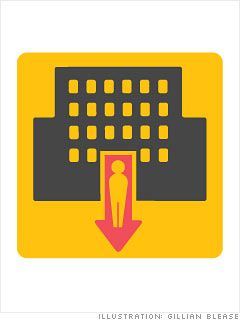Solve your health care challenges
Premiums soaring? Your insurer denied your claim? Retiree benefits got slashed? Try these strategies to cure what ails you when it comes to getting and paying for medical care.

The solution: If your spouse has a group plan you canjoin, that's clearly your best bet. Otherwise, you can stay on your former employer's group policy for up to 18 months, courtesy of the federal law known as COBRA (companies with fewer than 20 employees may be exempt). Sure, it's expensive, since you'll have to pick up the full tab, but it's still usually your next cheapest option for comprehensive coverage. (If you were laid off between Sept. 1, 2008, and May 31, 2010, you may qualify for a 65% government subsidy to help defray the cost; go to dol.gov for details.) You have 60 days to sign up and, in case you get a job in the meantime, you can wait until near the end of that period to enroll -- coverage will be retroactive.
Currently in the priciest Cadillac version of your company options? You can downgrade to a less expensive one when you sign up. If you can't swing that $1,000-plus premium, you can go with an individual plan with a big deductible. Those policies start at around $300 for a family but can cost thousands if you get sick. Avoid short-term plans, which cover catastrophic care and usually last only one to 12 months. They may cost a bit less than a typical bare-bones policy. But if you develop a condition while in this plan and you're forced to buy a regular individual policy after it expires, you're likely to pay more or face exclusions
More galleries

